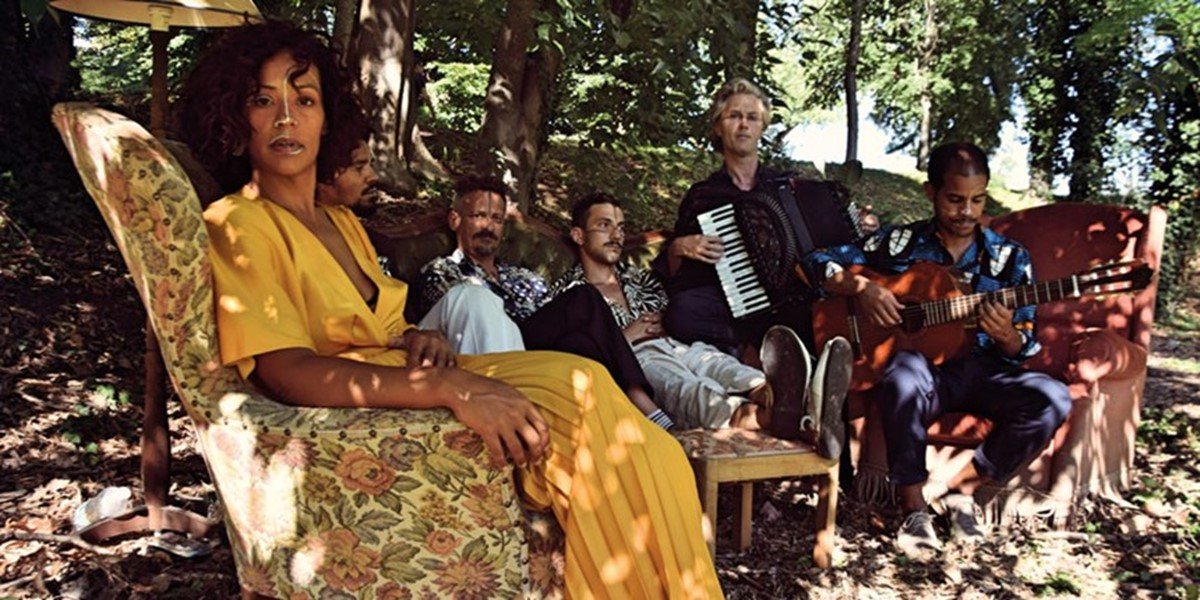Tuesday, December 7, 2021
Ritual Healing | an interview with Ayom
Ahead of their appearance at this year's Songlines Music Awards ceremony, revisit an interview with the Barcelona-based Ayom, whose push for greater global understanding via ritualistic Afro-Lusophone engagements bagged them 2021's Best Group category

Ayom (©Violeta Truden)

Register now to continue reading

Thanks for visiting the Songlines website, your guide to an extraordinary world of music and culture. Sign up for a free account now to enjoy:
- Free access to 2 subscriber-only articles and album reviews every month
- Unlimited access to our news and awards pages
- Our regular email newsletters

